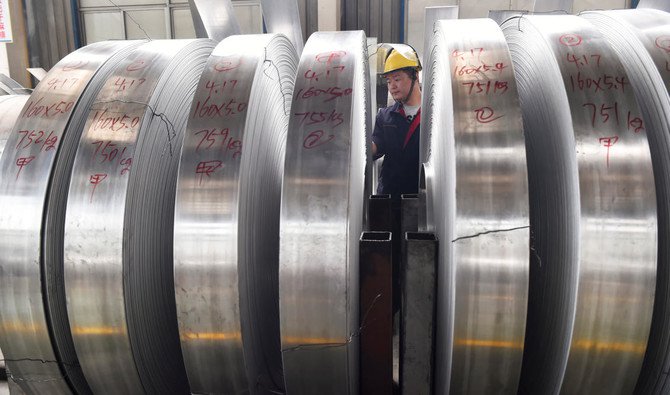Media Report

- CNBC reports: "The trade war with the U.S. couldn't have come at a worse timing for China, which had just begun focusing "in earnest" on fixing problems with its economy, J.P. Morgan analysts said on Wednesday. Many analysts have suggested that the impact of the Washington-Beijing trade skirmish will be relatively muted on the Chinese economy, noting that exports to the U.S. do not hold a commanding presence in China's economic portfolio. But that line of thinking does not take into account how tariffs will affect business sentiment, investment and growth in China, the J.P. Morgan analysts wrote in a note. Those indirect effects could lead to "large" collateral damage, they said."
- The Hill reports: "Don't look now, but there are numerous signs that President Trump is winning the trade war with China. While the battle over tariffs and protecting intellectual property may eventually damage the United States' economy, there are signs that China is already paying a price for its refusal to bend to Trump's demands. One indicator of that price is the sharp plunge in China's stock exchanges. Since the White House announced the first tariffs — on washing machines and solar cells on Jan. 22 — the Shanghai Index of Chinese stocks is down nearly 20 percent, while the S&P 500 is off less than 1 percent. That decline of share values is occurring in spite of the first-time inclusion in the MSCI, an important international index, of many Chinese stocks on June 1. That initial index listing attracted billions of dollars toward Chinese stocks, in expectation it would boost prices, but it did not."
- The Daily Beast reports: "In May, a classified Australian government report revealed that the Chinese Communist Party had spent the last decade attempting to influence every level of that nation's government and politics. "Unlike Russia, which seems to be as much for a good time rather than a long time, the Chinese are strategic, patient, and they set down foundations of organizations and very consistent narratives over a long period of time," said the author of the report in March... The report, compiled under the auspices of an intelligence agency, examined Chinese attempts to influence politicians, political donations, media, and academia... Such a report could easily be written about the United States—and may soon be. U.S. intelligence agencies have long tracked Beijing's clandestine attempts at political influence inside the United States."
Calendar
- 2018-07-17 The President Turns the Tables on China
- 2018-07-16 China files WTO challenge to US $200B tariff plan
- 2018-07-15 China looks to get cozy with EU in annual talks as Trump tariffs bite
- 2018-07-13 China's trade surplus with the US hit a record high in June
- 2018-07-12 China has its currency to use as a weapon in trade war with Trump
- 2018-07-11 Trump readies new tariffs on China
- 2018-07-10 Tesla will build its first factory outside the US in China
- 2018-07-09 China attempts to get closer with Europe after Trump slaps new tariffs on Beijing
- 2018-07-08 Chinese risks to global stability are overblown
- 2018-07-06 China Says U.S. Has Begun 'Largest Trade War' In History, Retaliates With Tariffs
News
- CNBC The trade war is complicating China's efforts to fix its economy
- The Hill Trump is winning the trade war because China has more to lose
- Financial Times China bourses plan reprieve on dual-class Hong Kong shares
- CNBC Kudlow says President Trump is 'so dissatisfied' with China trade talks that he is keeping the pressure on
- CNBC China is investing 9 times more into Europe than into North America, report reveals
- Politico Kudlow: Chinese leader doesn't want a trade deal
- The Wall Street Journal American Professor Cites Academic Intolerance as Reason for Leaving China
- The Wall Street Journal United's Flights to China Boost Revenue
- CNBC 'Saturday Night Live' is temporarily pulled in China amid a crackdown on content
- CNN Box office hit sparks debate on drug prices in China
- Bloomberg Textile Industry Shattered by China Trade Embraces Trump Crusade
Commentary
- The Daily Beast China Built an Army of Influence Agents in the U.S.
- The New York Times How to Combat China's Rise in Tech: Federal Spending, Not Tariffs
- USA Today China's ambassador: Donald Trump's trade war is unjustified and unfair
- Quartz China is running out of US imports to tax—but there's still a big way it can punish the US
- The Verge Apple's iCloud partner in China will store user data on servers of state-run telecom
- Popular Science China launched two more massive Type 055 warships
- Forbes Are Tariffs Really Slowing The Chinese Economy?
- TechCrunch Google launches its first WeChat mini program as its China experiments continue
